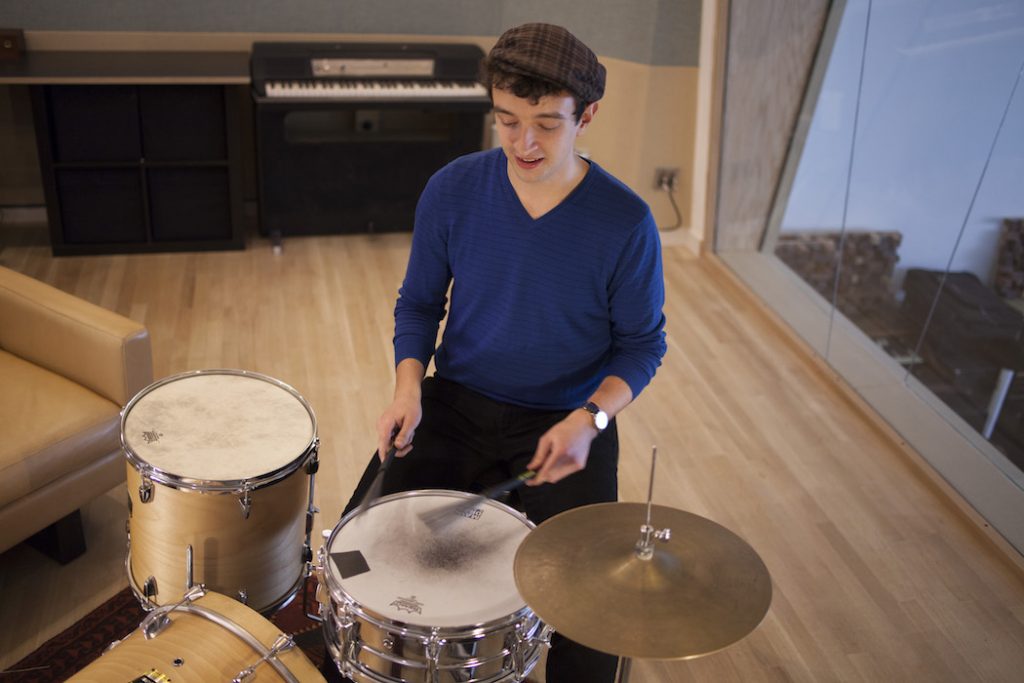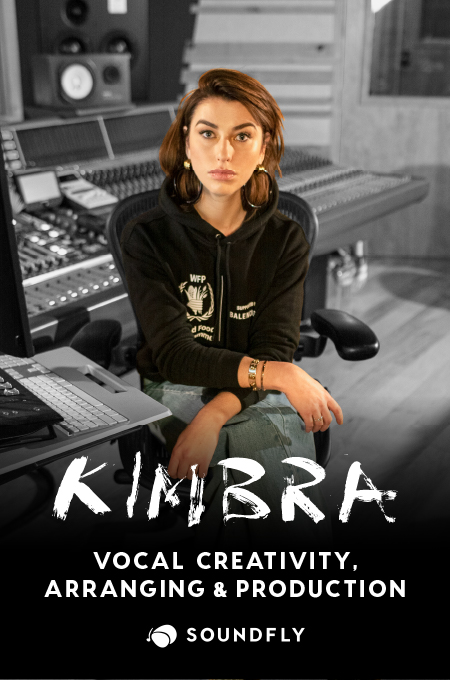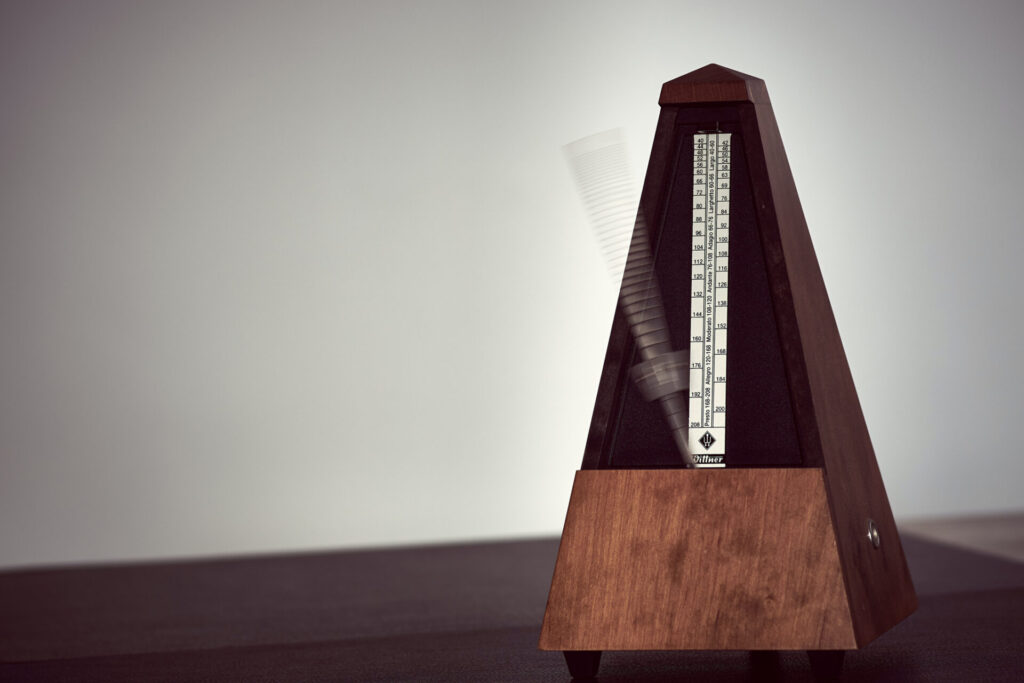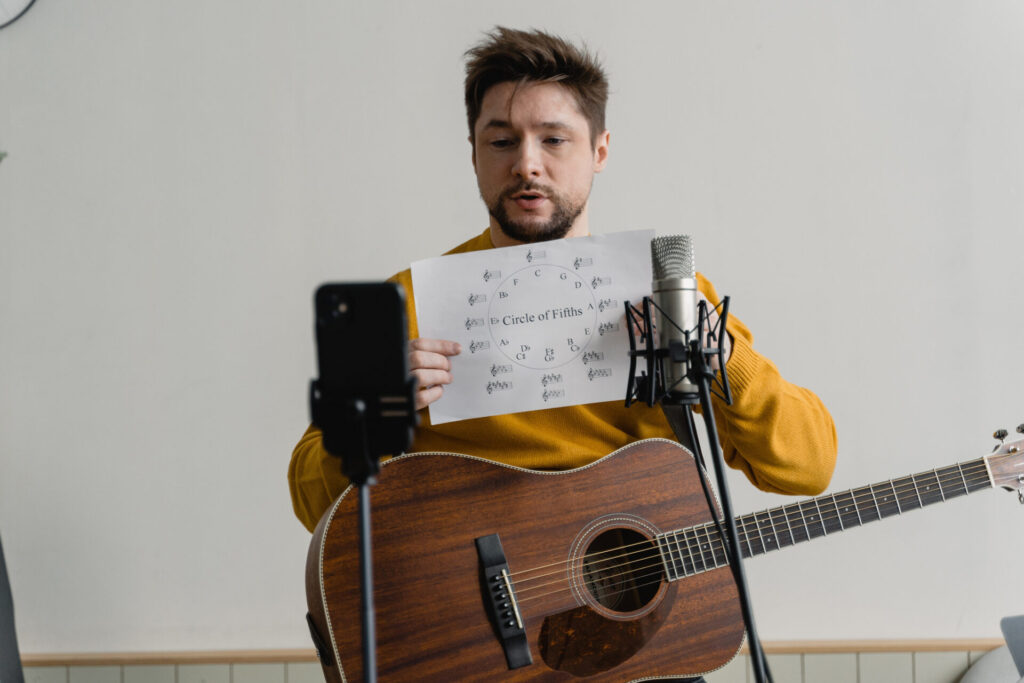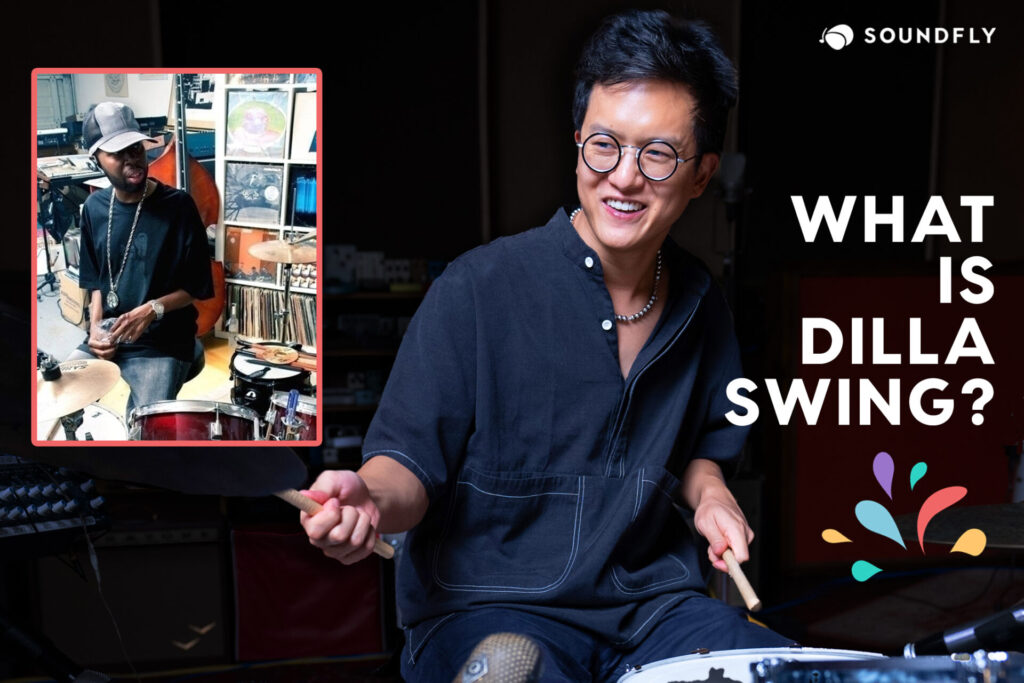+ Take your modern jazz piano and hip-hop beat making to new heights with Soundfly’s new course, Elijah Fox: Impressionist Piano & Production!
Whether you’re just starting out as a musician or you’ve been playing for many years, there are many times when practicing music feels too much like work and worry rather than joyfulness and freedom.
For many musicians, passion and enthusiasm go hand in hand with a dose of perfectionism that can often make rehearsal sessions feel like an unpleasant chore that would simply be easier to put off. But it doesn’t have to be that way — and with a few adjustments, you can very easily turn what feels like a chore into one of the most fulfilling high points of your day.
Here are a few techniques to try out if you’re feeling grumpy or unmotivated about your next scheduled rehearsal.
1. Listen to styles of music other than what you normally play.
It is easy to get sucked into one specific approach to music that dominates the way we not only practice it but think about it and even listen to it. If you’re classically trained, it is difficult not to see music in terms of building blocks and formulas.
While thinking about music this way has its great advantages, this focused immersion might belong in some environments (like research, composition, marketing, etc.) but not necessarily in others. In practice, you ideally want a bit of extra freedom to brainstorm, get creative and make mistakes, and especially listen to new ideas and new voices. If your rehearsals consist only of focusing on structure and repetition, that may limit your ability to enjoy practicing.
Try varying up what you serve your listening ear with a completely different approach to composition. Taking a break from your familiar styles of music has the potential to birth in you new and unfamiliar sounds for next time you sit at your instrument. After a listening session, return to your musical studies and feel the vibrations of the notes and the different emotions of the piece. Take deep breaths and just enjoy your instrument!
This approach works reciprocally: if classical music has never been your forte, you might find listening to classical composers like Vivaldi or Bach will broaden your understanding of your instrument and enhance your technique.
+ Learn how to marry theory, improvisation, and beat making to become a better pianist and producer, with Grammy-winner Kiefer’s Keys, Chords, & Beats.
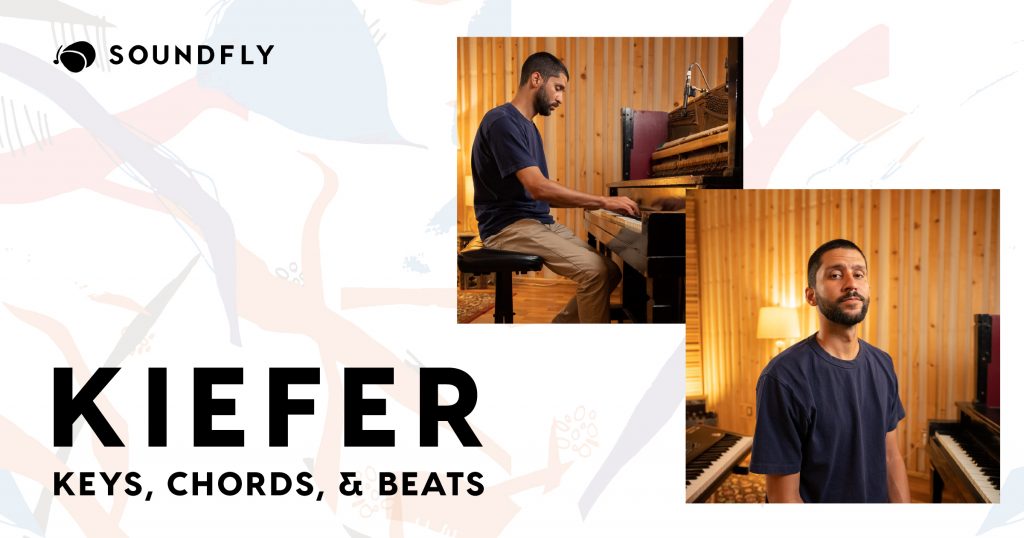
2. Self-expectation leads to stress, both physical and mental.
As musicians, we always want to play and sound our best — and that drive can take you a long way forward — but it may lead to a crippling self-doubt around comparing our current selves to our ideal selves. And over time, those high self-expectations can create added layers of anxiety and stress, making playing music and songwriting much more difficult than it has to be (and way less fun).
On a physical health level, when one focuses too much on playing pieces over and over until they are perfect, it is not unusual for injuries to occur from years of tensing your hands, back, and neck. As Dave Leisner explains in his book Playing With Ease:
“When both practicing and concert preparation are accomplished with an underlying attitude of ease, your musical interpretation organically grows to its greatest potential.”
If you are working on a specific piece for a little while, Leisner recommends letting go of it and stepping back, so that when you return to it your body will feel refreshed and rejuvenated. In other words, don’t strain your muscles with too much repeated and isolated activity. The approach of stepping back will cause less tension to your body in the long run.
If you happen to be working on mastering the often tedious business of sight reading and/or singing, you can increase your ability to absorb the information by taking a break from practicing this way and just jam out on your instrument by yourself or in a group.
3) Enjoy each section of the piece separately.
The experience of playing and listening to music is different for each player and each listener. With that being said, your feel for and enjoyment of music is unique to you. Remember to check back in with yourself and enjoy the sensation of the music as you play.
Identify the different sections of the piece you’re working on and work on them individually before playing the piece as a whole. What are the different nuances? What do the different sections make you think about, or feel?
For me, the element that really makes “Prelude in C Major” by J.S. Bach is the functionality and depth that seventh, or the B, brings to it, and how I always feel when it comes back around. That is how my own senses process intense emotion.
Work on each section as if it were a different narrative in an overall story or work of art, this will lead to further enjoyment of the piece you are working on. If the piece calls for broken chords or individual notes rather than playing the chord intact and together, try playing the whole chord all at once and allow your muscle memory to absorb the feeling of the chord. Then, after you’ve broken the piece down into its component parts, try working it from the beginning when you are ready.
This reminds me: lastly, you can look into “practice performing,” which is the subtle art of reimagining your rehearsal as if it were an audience-filled live performance. It’s both fun and challenging and it helps your mindset shift away from the boring aspects of rehearsing.
There are numerous reasons why you may get stuck in a rut that either keeps you from practicing entirely or keeps you from feeling fulfilled by your practice sessions. Perhaps you have dedicated your whole life to seeing and playing music the same way and you just don’t feel the same enthusiasm as you pick up your instrument. I would say the answer could be to vary your approach.
Or maybe you’re just picking up music for the first time, and there is so much music out there that even though you love listening, you don’t know where to begin in terms of actually playing music that is uniquely your own. I would say simply to begin, to put one foot in front of the other and see where your talent and approach take you.
Music is not always linear, your approach to learning it doesn’t have to be either. Your exploration may take you in a direction you never would have anticipated, and that is something to be excited about.
Play Your Heart Out!
Continue your learning adventure on Soundfly with modern, creative courses on songwriting, mixing, production, composing, synths, beats, and more by artists like Kiefer, Kimbra, Com Truise, Jlin, Ryan Lott, RJD2, and our newly launched Elijah Fox: Impressionist Piano & Production.
